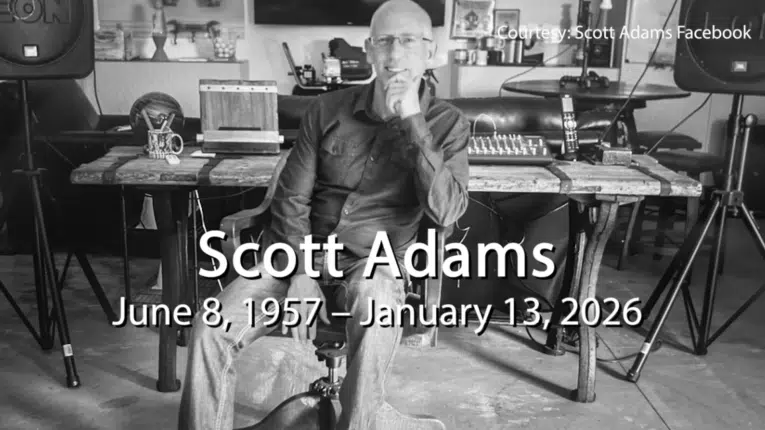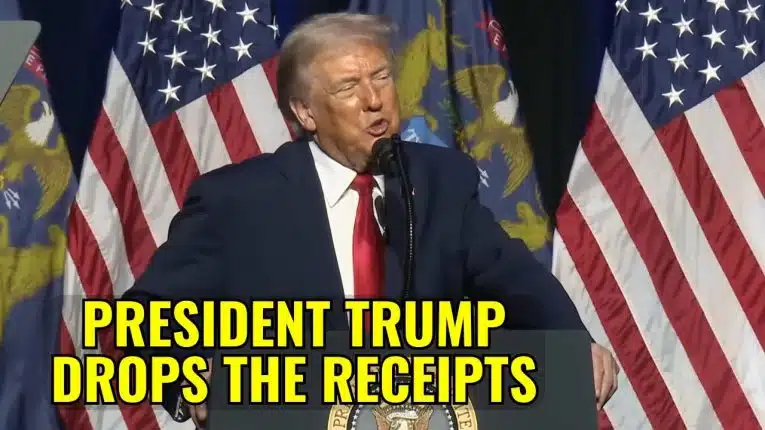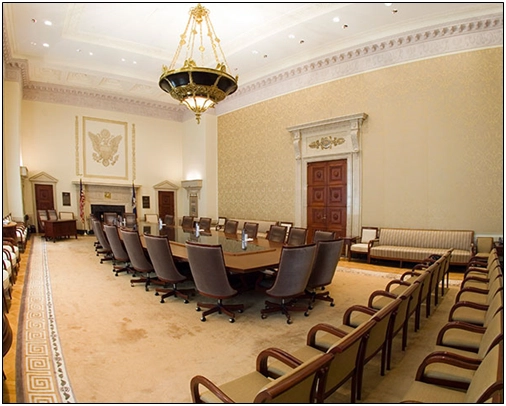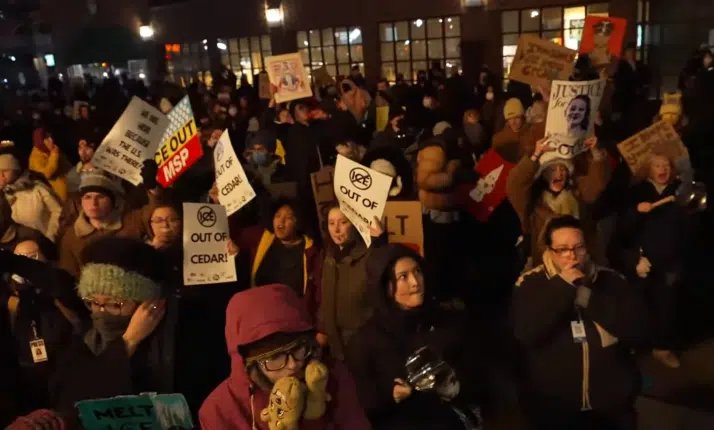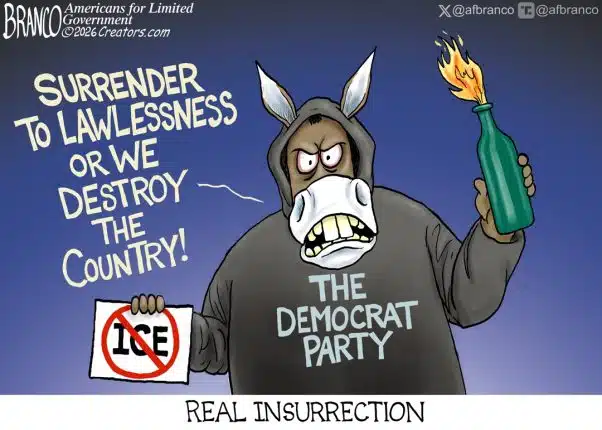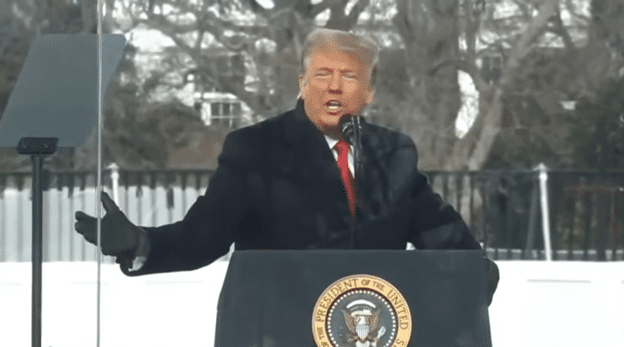
The U.S. Supreme Court confirmed in a 6 to 3 ruling that former President Donald Trump, and all sitting and former presidents, for that matter, enjoy absolute immunity from criminal prosecution for exercising their core constitutional responsibilities and at least presumptive immunity for anything stemming from official acts taken as president.
That is the initial outcome of the Trump v. United States case on presidential immunity as it relates to potentially official acts by former President Donald Trump when he challenged the results of the 2020 election while still in office, including urging Congress to reject the electors of Arizona, Pennsylvania and Georgia.
On Dec. 1, 2023, U.S. District Judge Tanya Chutkan dismissed Trump’s claims of presidential immunity as a former president, saying that former presidents could be prosecuted even for official acts while in office: “Whatever immunities a sitting President may enjoy, the United States has only one Chief Executive at a time, and that position does not confer a lifelong ‘get-out-of-jail-free’ pass. Former Presidents enjoy no special conditions on their federal criminal liability. Defendant may be subject to federal investigation, indictment, prosecution, conviction, and punishment for any criminal acts undertaken while in office.”
Chutkan did so without any analysis about whether the acts in question were official or were private or whether the official acts in question were core powers that Congress would have no power to criminalize, it was simply a blanket denial that any analysis at all was necessary at the district court level to get the case to trial.
The Court stated, upholding the precedent set in Nixon v. Fitzgerald in 1982 finding absolute immunity from civil lawsuits stemming from former President Richard Nixon’s official acts taken as president, such as firing federal employees, stating as it related to a criminal prosecution, the standard is only heightened, “the President must be immune from prosecution for an official act unless the Government can show that applying a criminal prohibition to that act would pose no ‘dangers of intrusion on the authority and functions of the Executive Branch.’”
But it is not a blank check: “As for a President’s unofficial acts, there is no immunity. Although Presidential immunity is required for official actions to ensure that the President’s decisionmaking is not distorted by the threat of future litigation stemming from those actions, that concern does not support immunity for unofficial conduct.”
In Trump’s initial brief asking for the stay on the district court’s ruling, his lawyers had outlined the conduct for which he was charged that they say fell within the President’s duties, arguing he had the power to investigate claims of election fraud in 2020 and then to communicate to the executive branch, the legislative branch and the states his position on those questions.
First, addressing the federal indictment, Trump says he communicated using official channels “matters of paramount federal concern” with his election fraud allegation: “using official channels of communication, made a series of tweets and other public statements on matters of paramount federal concern, contending that the 2020 federal election was tainted by fraud and irregularities that should be addressed by government officials.”
Second, Trump also communicated these concerns to the Justice Department: “President Trump communicated with the Acting Attorney General and officials at the U.S. Department of Justice—which he oversaw as an integral part of his official duties as chief executive—about investigating suspected election crimes and irregularities, and possibly appointing a new Acting Attorney General.”
Third, Trump similarly communicated these concerns to states: “President Trump communicated with state officials about the administration of the federal election and urged them to exercise their official responsibilities in accordance with the conclusion that the 2020 presidential election was tainted by fraud and irregularities.”
Fourth, Trump communicated the same concerns to the Vice President and to Congress: “President Trump communicated with the Vice President in his capacity as President of the Senate, the Vice President’s official staff, and other members of Congress to urge them to exercise their official duties in the election certification process in accordance with President Trump’s contention that the election was tainted by fraud and irregularities.”
And fifth, then alternate slates of electors were convened for the Vice President and Congress to consider on Jan. 6, 2021: “other individuals organized slates of alternate electors from seven States to ensure that the Vice President would be authorized to exercise his official duties in the manner urged by President Trump… According to the indictment, these alternate slates of electors were designed to validate the Vice President’s authority to conduct his official duties as President Trump urged.”
Here, Trump has argued that those were all things he had the power to do as president, even if they were not all core elements of the executive’s powers.
Now those questions must be decided first at the district court level, meaning it would be up to Special Counsel Jack Smith to prove either that the cases against Trump constitute unofficial acts subject to criminal penalty, and/or that to the extent there were official acts, like communicating with the Justice Department to investigate election fraud or even with Vice President Mike Pence to do with his constitutional responsibilities in certifying the Electoral College, that a criminal prosecution would not otherwise unduly interfere with the functioning of the Presidency.
On those counts, the Court ruled that Trump is presumptively immune, and remanded the case back to lower courts to offer Smith the opportunity to rebut that presumption.
Similarly, the case was remanded for discussions that Trump had had with non-federal officials, including state election officials and private actors as potentially being unofficial acts, but allowing that Trump had argued that he was still trying to ensure the fairness of election in his official duties, stating all of those factors “requires a fact-specific analysis of the indictment’s extensive and interrelated allegations.”
So, it’s hardly a slam dunk for Trump. The case goes back to lower courts so that a proper analysis of what acts were official and which were unofficial must occur before the prosecutions can proceed. The undue haste with which the district and circuit courts skipped past this analysis in a bid to get the prosecutions done before the 2024 election was rebutted, and now the cases, including those in Georgia, Florida and Washington, D.C., must proceed accordingly at the lower level.
That might upset a political timeline for Trump’s prosecutions from the perspective of his Democratic prosecutors, but the dangers this poses to the exercise of presidential responsibilities while in office necessitate that a proper constitutional analysis be conducted every step of the way. Lower courts might disagree with the Supreme Court’s ruling, but that does not obviate the need for them to still conduct the analysis. It’s a fair ruling, and guarantees that when the analysis proceeds back to Supreme Court, it will be based on the facts of the case, and not blanket assertions that former presidents simply have no immunity for anything.
Robert Romano is the Vice President of Public Policy at Americans for Limited Government Foundation.


